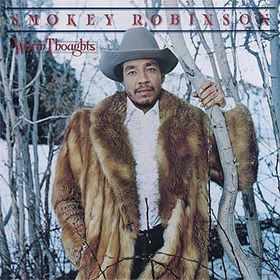
Warm Thoughts is a 1980 album by Smokey Robinson. It features the top 40 hit, "Let Me Be the Clock". The album was arranged by Reginald "Sonny" Burke. This album also featured the semi-autobiographical tune "Wine, Women and Song", which proved to be the closest thing to a Miracles reunion that occurred in the 1980s, with Smokey doing a duet with his then-wife, former Miracle Claudette Robinson, and Miracle Marv Tarplin, with whom he shared songwriting credits, on guitar. The song "Travelin' Thru'" was written by Smokey's real-life sister, Rose Ella Jones, and two songs written by Robinson with fellow Motown artist, Stevie Wonder, and singer, songwriter, and former Starsky and Hutch star, David Soul. This album was a huge success, reaching the Top 20 of The Billboard 200 Pop Album chart, peaking at #14, and the Top 10 of Billboard's R&B Album Chart, peaking at #4.

A Quiet Storm is the 1975 third solo album by American soul singer, songwriter, and producer Smokey Robinson. The album received generally positive reviews, and spawned the hit single "Baby That's Backatcha", which spent one week at the top of the Billboard Hot Soul Singles chart.

Going to a Go-Go is a 1965 album by the Miracles, the first to credit the group as Smokey Robinson and the Miracles. It includes four of the Miracles' Top 20 hits: "Ooo Baby Baby", "The Tracks of My Tears", "Going to a Go-Go", and "My Girl Has Gone". It was produced by Miracles lead singer Smokey Robinson, along with Frank Wilson and William "Mickey" Stevenson.
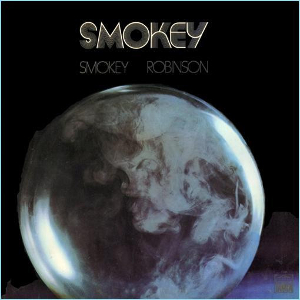
Smokey is the debut studio album by American soul singer, songwriter, and producer Smokey Robinson. It was released on June 19, 1973, by Tamla Records and was Robinson's first solo record after his departure from The Miracles. The album featured the single "Sweet Harmony", which was his tribute to his former singing partners in the Miracles: Bobby Rogers, Pete Moore and Ronnie White. Smokey was arranged by Dave Blumberg, Gene Page and Willie Hutch. It also featured the song "Baby Come Close", his first solo hit single, and the single "Just My Soul Responding", a protest song dealing with ghetto life in America, and the plight of the American Indian. Smokey peaked at number 70 on the Billboard albums chart, on which it spent 19 weeks.

Pure Smokey is Smokey Robinson's second post-Miracles album, released in 1974. It features the single "Virgin Man." Several songs were written by Robinson with fellow Miracle Marv Tarplin, who left the group a year after Robinson's departure to join him in California and assist him in his solo projects.

Love Breeze is a Smokey Robinson album released in 1978. It was arranged by Sonny Burke.

Smokin' is a Smokey Robinson live album released in 1978.

Where There's Smoke... is a 1979 album by Smokey Robinson, released on Motown Records' Tamla label. It contains his Billboard Top ten pop hit single "Cruisin'".
"Going to a Go-Go" is a 1965 single recorded by The Miracles for Motown's Tamla label.
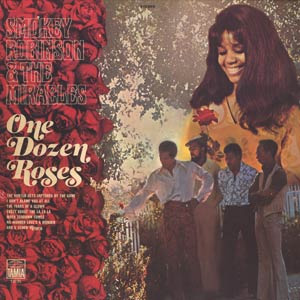
One Dozen Roses is a 1971 album by Smokey Robinson & The Miracles, issued on Motown Records' Tamla label. The penultimate album before lead singer Smokey Robinson departed the group for a solo career, One Dozen Roses features the Top 20 Billboard Hot 100 hit single "I Don't Blame You at All". Also included is the group's number-one smash hit "The Tears of a Clown", which was also made available through the reissue of the 1967 Miracles LP Make It Happen as The Tears of a Clown. Both of these songs were also huge hits in the UK, reaching #11 and #1 respectively.
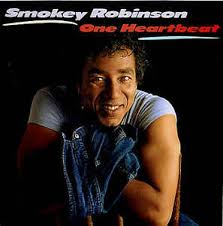
One Heartbeat is a million-selling 1987 album by R&B singer/songwriter Smokey Robinson. It hit number 26 on the US Billboard Album Chart and number 1 on the US Billboard R&B album chart.
Flying High Together is an album by Smokey Robinson and the Miracles on Motown Records' Tamla label, released in 1972. It is noted as The Miracles' last studio album with original lead singer Smokey Robinson, who retired from the act to concentrate on his duties as Vice President of The Motown Record Corporation. The album charted at #46 on the Billboard Pop Album chart, and featured two singles: the appropriately named "We've Come Too Far to End It Now", which matched the parent album's chart position on the Billboard singles chart, charting at #46, and reached the Top 10 of the Billboard R&B singles chart, charting at #9, and "I Can't Stand to See You Cry", which charted at #45 Pop, and #21 R&B.

In the Mood for Something Rude is the eleventh studio album by British hard rock band Foghat, released in 1982. All eight tracks on the album were penned by outside writers, and the record is something of a covers album in which the band applies its bluesy rock and roll style over a collection of R&B and country tunes.
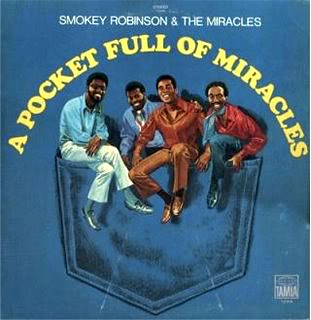
A Pocket Full of Miracles (TS306) is a 1970 album by Motown Records R&B group The Miracles, issued on its Tamla subsidiary label, one of three albums the group released that year. This album charted at #56 on the Billboard pop albums chart, and reached the top ten of the magazine's R&B albums chart, peaking at #10. It was released on September 30 of that year. Hit singles on the album included "Point It Out" and the topical Ashford & Simpson written-and-produced song "Who's Gonna Take the Blame", a sad, dark song about a girl that is turned out as a prostitute. Also included is the charting flip side "Darling Dear", B-side of "Point It Out", which reached #100 on the Billboard pop chart, and spawned a cover version by The Jackson Five.

Reservations for Two is a studio album by the American singer Dionne Warwick. It was recorded during the spring of 1987 and released on July 30 of that year. Her eighth album for Arista Records, it was again executive produced by label head Clive Davis. Warwick reteamed with Barry Manilow and the duo Burt Bacharach and Carole Bayer Sager to work on the album, while Kashif, Jerry Knight, Howard Hewett and Smokey Robinson also contributed to the tracks.
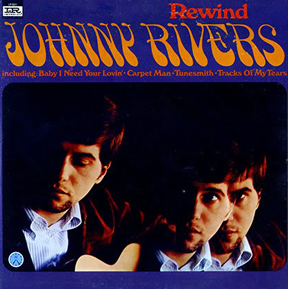
Rewind is the fourth studio album by the American musician Johnny Rivers, released in 1967 by Imperial Records. The album includes cover versions of "Baby, I Need Your Lovin'" and "The Tracks of My Tears". Produced by Lou Adler with arrangements by Jimmy Webb, who wrote seven of the songs. Noted Los Angeles session musicians The Wrecking Crew provided the music. The album spent 21 weeks on the Billboard albums chart and peaked at #14. "Tracks of my Tears" spent nine weeks on the Billboard Hot 100 and peaked at #9, while "Baby I Need Your Lovin'" spent eleven weeks and peaked at #3.

Touch the Sky is a 1983 album by American singer Smokey Robinson. It was produced and arranged by Robinson with Reginald "Sonny" Burke, and recorded and mixed at Golden Sound Studios, Inc., Hollywood, California. The album was released on the Motown sub-label Tamla.

Love, Smokey is a 1990 Smokey Robinson album. Love, Smokey was the follow-up to Robinson's very successful album One Heartbeat. The first single was "Everything You Touch". This song reached #2 on the adult contemporary chart. Stevie Wonder plays harmonica on the track "Easy". Singles from this album: 1. "Everything You Touch". 2. "It's The Same Old Love". 3. "Take Me Through The night". Songs one and two listed above had accompanying music videos. Robinson's daughter Tamla appeared in the video for "It's The Same Old Love". The CD format had 2 bonus tracks over the cassette and record versions.
Double Good Everything is an album by the American R&B musician Smokey Robinson, released in 1991. It was his first album to be released by a label other than Motown.
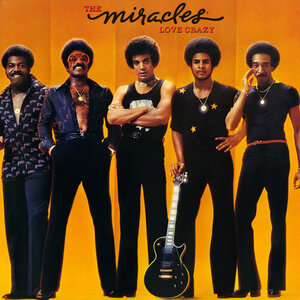
Love Crazy is an album by American R&B group The Miracles featuring singer Billy Griffin, released via Columbia Records in 1977. The album is the first of two albums released on their new label following their departure from Motown.

















